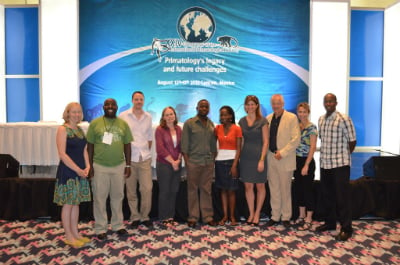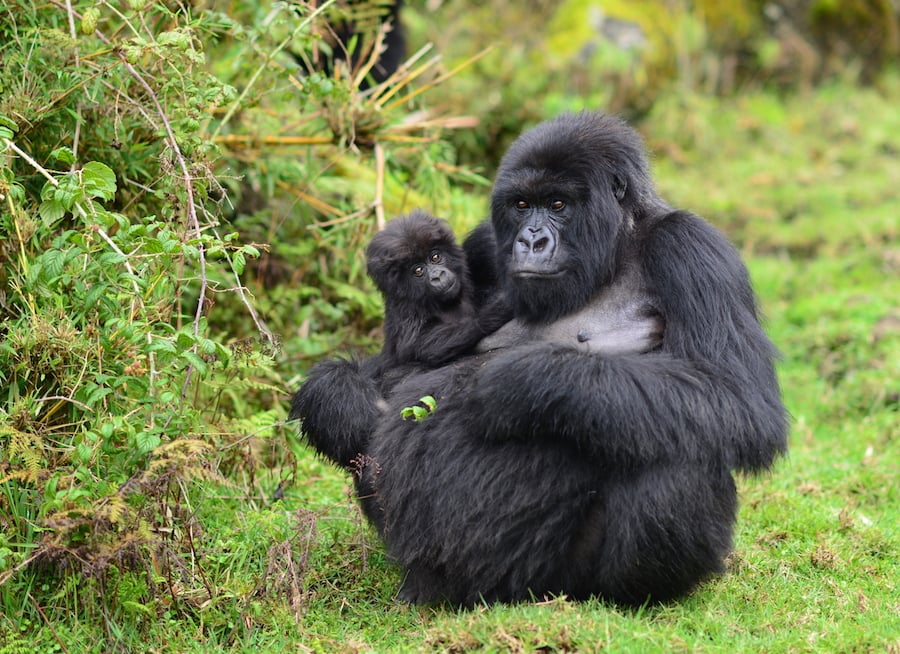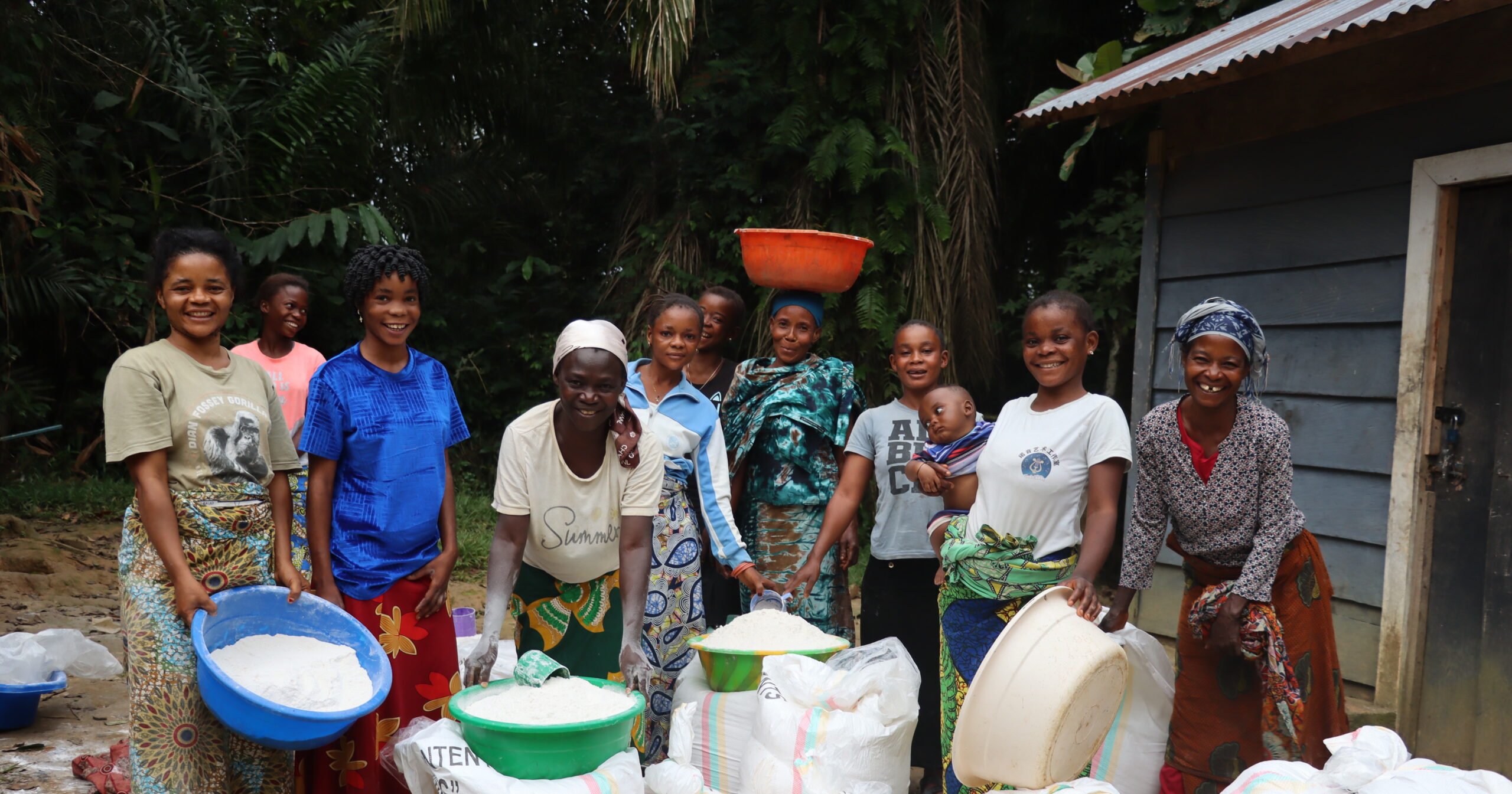September 10, 2012
Fossey Fund Showcased at International Primatological Society Congress
 The Dian Fossey Gorilla Fund enjoyed an especially high profile at the International Primatological Society’s (IPS) 2012 congress, held in Cancun, Mexico in August. Because 2012 marks the 45th anniversary of the Fossey Fund’s Karisoke Research Center, our staff organized a symposium to feature current and previous Karisoke scientists, including four Rwandan scientists, who presented an overview of the Center’s contribution to the field of primatology and its current research on the mountain gorillas and other biodiversity in the region. In addition, Biodiversity Program Coordinator Deogratias Tuyisingize presented research on Karisoke’s work with golden monkeys, in a separate session.
The Dian Fossey Gorilla Fund enjoyed an especially high profile at the International Primatological Society’s (IPS) 2012 congress, held in Cancun, Mexico in August. Because 2012 marks the 45th anniversary of the Fossey Fund’s Karisoke Research Center, our staff organized a symposium to feature current and previous Karisoke scientists, including four Rwandan scientists, who presented an overview of the Center’s contribution to the field of primatology and its current research on the mountain gorillas and other biodiversity in the region. In addition, Biodiversity Program Coordinator Deogratias Tuyisingize presented research on Karisoke’s work with golden monkeys, in a separate session.
The IPS congress, held every two years, brings together primatologists from all over the world. Its theme for 2012 was “Primatology’s Legacy and Future Challenges,” which was especially relevant to Karisoke. The symposium: “Mountain Gorillas (Gorilla beringe beringe) Then and Now: Celebrating 45 years of Research at the Karisoke Research Center” was organized by Tara Stoinski, Ph.D., Dian Fossey Gorilla Fund’s vice president and chief scientist.
“Since Dr. Dian Fossey established Karisoke to gain insights into the evolutionary origins of humans, the center has helped advance our understanding of a broad range of topics, including social behavior, population dynamics, feeding ecology, reproductive strategies, life history decisions and conservation,” says Stoinski. “The symposium touched on many of these. In addition, a common theme connecting the individual presentations was the importance of Karisoke’s long-term datasets for answering questions about the social and ecological adaptations that have shaped primate evolution.”
Dieter Steklis, Ph.D. and Netzin Steklis, a former Karisoke director and researcher, respectively, opened with “Forty-five Years of Research at Karisoke: Its Influence on Primatology.” The eight talks that followed focused on highlighting the variety of work currently being done at Karisoke. The majority of talks focused on gorilla research and included topics such as inbreeding avoidance; female reproductive success; home range patterns; sibling relationships; long-term partner preferences; socioecological influences on females’ energy gain and expenditure; and individual gorilla personalities. The symposium ended with a study of female relationships among golden monkeys, to highlight research that is being done on other biodiversity in the Virunga region.






